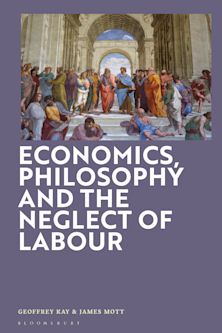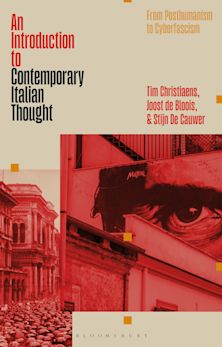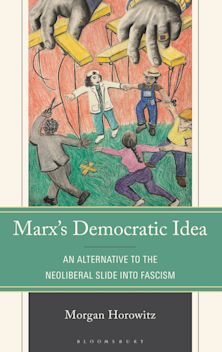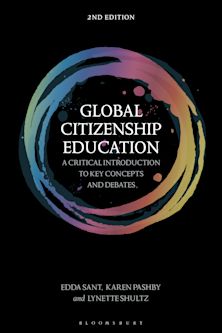- Home
- ACADEMIC
- Philosophy
- Social and Political Philosophy
- Decrypting Political Theology
Decrypting Political Theology
Genealogy, Tendencies, Antagonisms
Decrypting Political Theology
Genealogy, Tendencies, Antagonisms
This product is usually dispatched within 1 week
- Delivery and returns info
-
Free US delivery on orders $35 or over
You must sign in to add this item to your wishlist. Please sign in or create an account
Description
This book presents a genealogy of the concept of political theology through the theory of encryption of power.
The legitimacy of political power, largely overlooked in traditional political theory and philosophy, is largely rooted in what has come to be known as political theology, although the current state may be formally secular. This concept is essential for philosophical interpretations that can unveil and address the complex interconnections between religion and politics, as well as faith and power. This book employs the theory of the encryption of power and the ontological idea of an-anarchy-that is, a practice of thought without foundations and centered on flow, potency, and contingency-to provide a brief genealogy of the idea of political theology, exploring its key authors, both classical (such as Schmitt, Benjamin, and Taubes) and contemporary, including feminist, black, and decolonial perspectives. These contemporary approaches emerge from processes that decrypt power and, by moving beyond the sovereign framework, antagonize political-economic authority. The book also examines phenomena such as Christofascism, prosperity theology, and neo-Pentecostalism in politics, alongside other significant themes relevant to today's world.
Table of Contents
Introduction: Why Political Theology Today?
1. Genealogy
2. Tendencies
3. Antagonisms
Conclusion: Life in Common and Radical-Democratic Faith
Product details

| Published | Dec 11 2025 |
|---|---|
| Format | Hardback |
| Edition | 1st |
| Extent | 240 |
| ISBN | 9781666978650 |
| Imprint | Bloomsbury Academic |
| Dimensions | 9 x 6 inches |
| Series | Decrypting Power and Coloniality: Philosophical Perspectives from and through the Global South |
| Publisher | Bloomsbury Publishing |
About the contributors
Reviews
-
In this intelligent and important book Andityas Matos presents a thesis that is perfectly understandable and agreeable: politics cannot free itself from an implicit or explicit reference to religious transcendence. In this way, post-structuralist and post-colonial critical thought engages with political theology by seeking a non-authoritarian origin of politics, thereby bringing forth in this work a democratic approach to political theology, articulated in a compelling and innovative manner. Another noteworthy aspect is the author's critical attention to old and new forms of anti-democratic and foundationalist political theology, such as the sacralisation of politics and economics and the politicisation of religion. Against this, the author presents the idea of democracy as a way of life that embraces the transcendent dimension in order to avoid falling into structures of domination.
Carlo Galli, University of Bologna
-
Attacking the hubris of Western secularism, this book unmasks or 'decrypts' the politico-theological structures and ways of thinking that underpin our political experience. Matos gives us a remarkably clear and accessible genealogy of political theology, showing that we are not quite as secular as we thought. He also frees political theology from the conservative, sovereign-centred paradigm indebted to Carl Schmitt, showing how the interplay between religious and political modes of experience can lead to new ways of thinking about emancipation, building on decolonial, black, feminist, and even (post)anarchist perspectives. This is an exciting contribution to the study of political theology.
Saul Newman, Goldsmiths, University of London, UK
-
Political theology aims less to found power than to prevent the liberation of its constitutive “an-archy.” A supplement of theological transcendence being indispensable to any political community, any project of radical democracy must reassign it to its own ends. This is what this feminist and decolonial book, driven by the philosophical inventiveness of the Global South, demonstrates. Matos invites us to have “faith” in the “hidden people,” the heterogeneous and creative multiplicity that political theology “encrypts”-codes and perverts-in the form of a homogeneous and servile people. Everybody must read this invigorating call to disobey the religious and economic discourses that justify the world's unequal order.
Frédéric Neyrat, University of Wisconsin–Madison, USA

ONLINE RESOURCES
Bloomsbury Collections
This book is available on Bloomsbury Collections where your library has access.




































